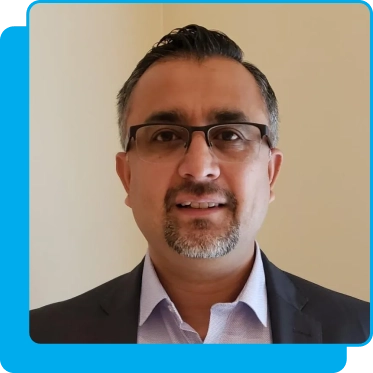
6 Social Media Marketing Tips For Healthcare Business Growth
Social media is playing a significant role in how patients and potential clients consumer health-related information. According to a recent study, more than three-fourths of the people surveyed used social media platforms for COVID-19-related information. This data shows a significant shift in consuming information, highlighting the growing importance of social media marketing in the healthcare industry.
In this blog post, we will explore six powerful social media marketing strategies that can help your healthcare business drive growth, build brand credibility, and engage with its audience effectively.
Optimize Your Social Media Profiles
Example, if your healthcare business is related to health supplements for under-30 gym enthusiasts, then you should optimize your social media profiles that resonate with such an audience. You can begin by ensuring that your profiles across platforms like Facebook, Instagram, Twitter, and LinkedIn are consistent in branding, tone, and messaging. You can utilize high-quality visuals, such as your logo, cover photos, and profile pictures, to create a cohesive and recognizable brand identity.
Next, optimize your profiles by providing detailed information about your healthcare organization, including your services, specialties, and key personnel. Lastly, identify the social media platforms that best align with your target demographics and focus your efforts on those channels. By tailoring your presence to the preferences and behaviors of your audience, you can maximize the impact of your social media marketing efforts.
Create Valuable and Informative Content
You also need to ensure that your content is not only informative but also visually appealing. If you don’t have the resources or tools to produce high-quality content, then you can hire agencies providing social media marketing services. This helps you to create content that is worth sharing with your audience.
Lastly, remember to optimize your content for search engines by incorporating relevant keywords, meta-descriptions, and other SEO best practices. Similarly, you can also incorporate hashtags and interesting captions on your social media posts to increase their shareability.
Engage with Your Audience
To encourage your audience to share their thoughts, opinions, and experiences, you can leverage the interactive features of social media, like polls, Q&A sessions, and live streams. This type of two-way communication can provide valuable insights into the needs and preferences of your target audience, allowing you to tailor your content and services.
Implement a Consistent Content Calendar and Scheduling
Since consistency is key in social media marketing for healthcare, maintaining a regular cadence of high-quality content will help you build trust, nurture relationships, and keep your healthcare business top-of-mind with your target audience.
Monitor and Analyze Social Media Metrics
Ensure Compliance and Protect Patient Privacy
Since the healthcare industry and its marketing is a sensitive matter, you should also be wary of the related regulations and ensure compliance. It is vital to maintain the highest standards of compliance and patient privacy when leveraging social media marketing. Strict regulations like the Health Insurance Portability and Accountability Act (HIPAA) in the US, must be meticulously followed to protect sensitive patient information and present the trust of your audience.
Final Thoughts
Social media has become indispensable in marketing healthcare businesses to reach and engage with target audiences, build brand credibility, and drive growth. By implementing these six basic yet powerful social media marketing strategies, your healthcare brand can effectively leverage the power of social media platforms and stay ahead of the competition.
If these strategies sound overwhelming, which they can; reach out to Blue Kanyon today. As a company providing social media marketing services, we can help you reach your targeted healthcare audience.
Book your appointment with Blue Kanyon today to increase awareness with the help of our fractional marketing CMO and marketing coach for health and wellness businesses by leveraging SEO strategies.
Contact Blue Kanyon today to increase awareness by leveraging SEO strategies.
Frequently Asked Questions (FAQs)
Customer experience plays a significant role in shaping brand perceptions and influencing brand awareness. Positive experiences lead to increased brand loyalty and advocacy, while negative experiences can damage brand reputation and reduce awareness.
Yes, small businesses can build strong brand awareness by implementing strategic branding and marketing initiatives, including SEO tactics. While small businesses may have limited resources compared to larger competitors, they can still establish a distinct brand identity, engage with their target audience, and create memorable experiences. By focusing on niche markets, leveraging social media, and delivering exceptional products or services, small businesses can effectively build brand awareness and compete in the marketplace.
The time it takes to establish significant brand awareness varies depending on various factors, including industry, target audience, competition, and marketing efforts. Building brand awareness is a gradual process that requires consistency, patience, and ongoing investment in branding and marketing initiatives. While some businesses may see results relatively quickly, others may take months or even years to achieve significant brand recognition. By staying committed to building brand equity and executing effective marketing strategies, businesses can accelerate the process of establishing brand awareness over time.
Common challenges in brand awareness campaigns include:
- Limited budget and resources: Small businesses and startups often face budget constraints when trying to establish brand awareness.
- Market saturation and competition: Standing out in a crowded marketplace and competing with established brands can be challenging.
- Measuring effectiveness: Determining the impact and ROI of brand awareness campaigns can be difficult, especially in the early stages.
- Consistency and messaging: Maintaining consistency in branding and messaging across different channels and touchpoints is essential but can be challenging.
- Adapting to changes: Keeping up with evolving consumer preferences, market trends, and technological advancements requires agility and flexibility.
By addressing these challenges with strategic planning, creativity, and perseverance, businesses can overcome obstacles and achieve success in their brand awareness efforts.
No, brand awareness is not limited to online platforms. While online channels such as websites, social media, and search engines play a crucial role in building brand awareness, offline channels such as print media, TV, radio, events, and word-of-mouth marketing also contribute to brand visibility and recognition. A comprehensive brand awareness strategy should encompass both online and offline channels to reach a broader audience.

